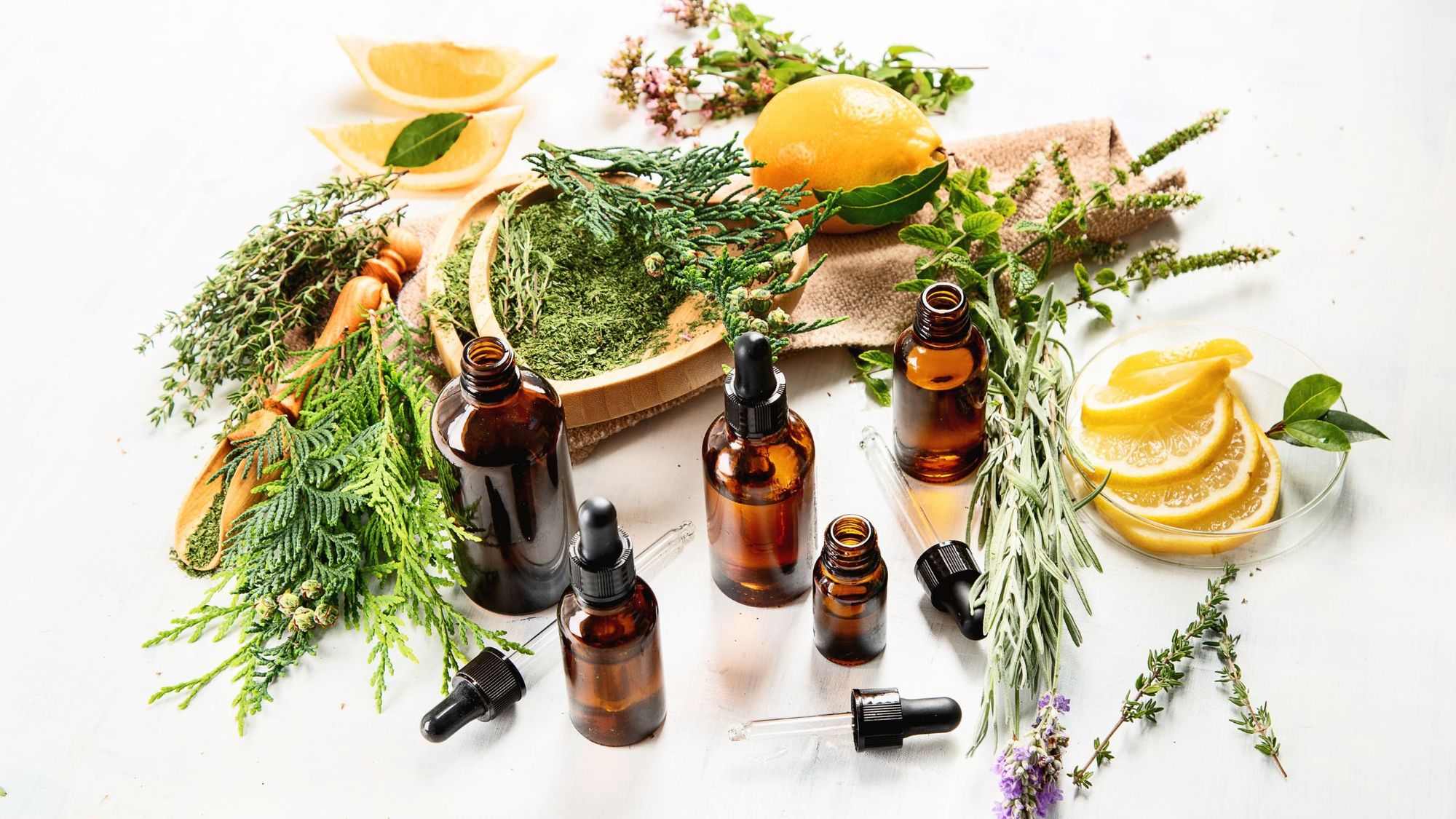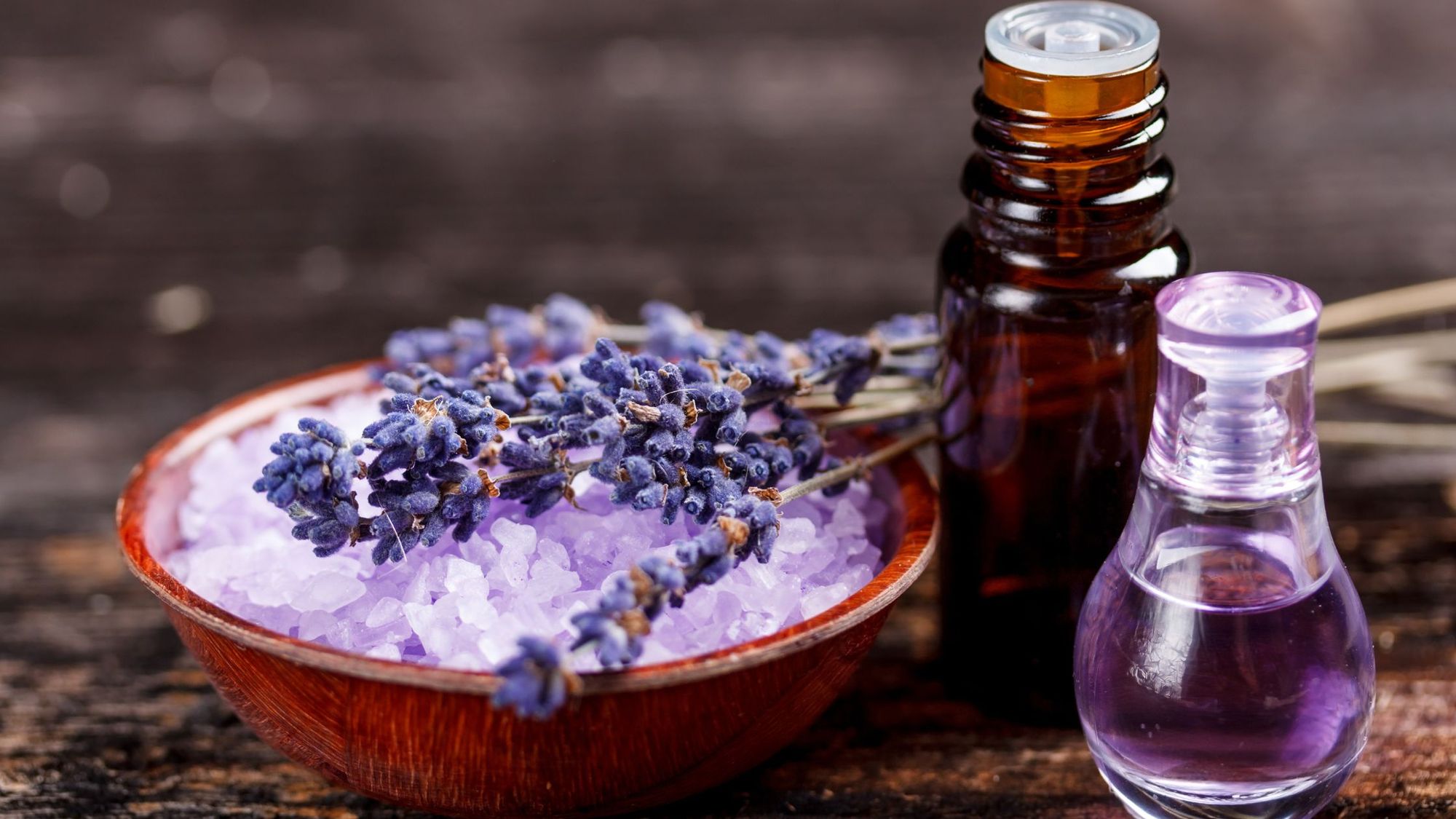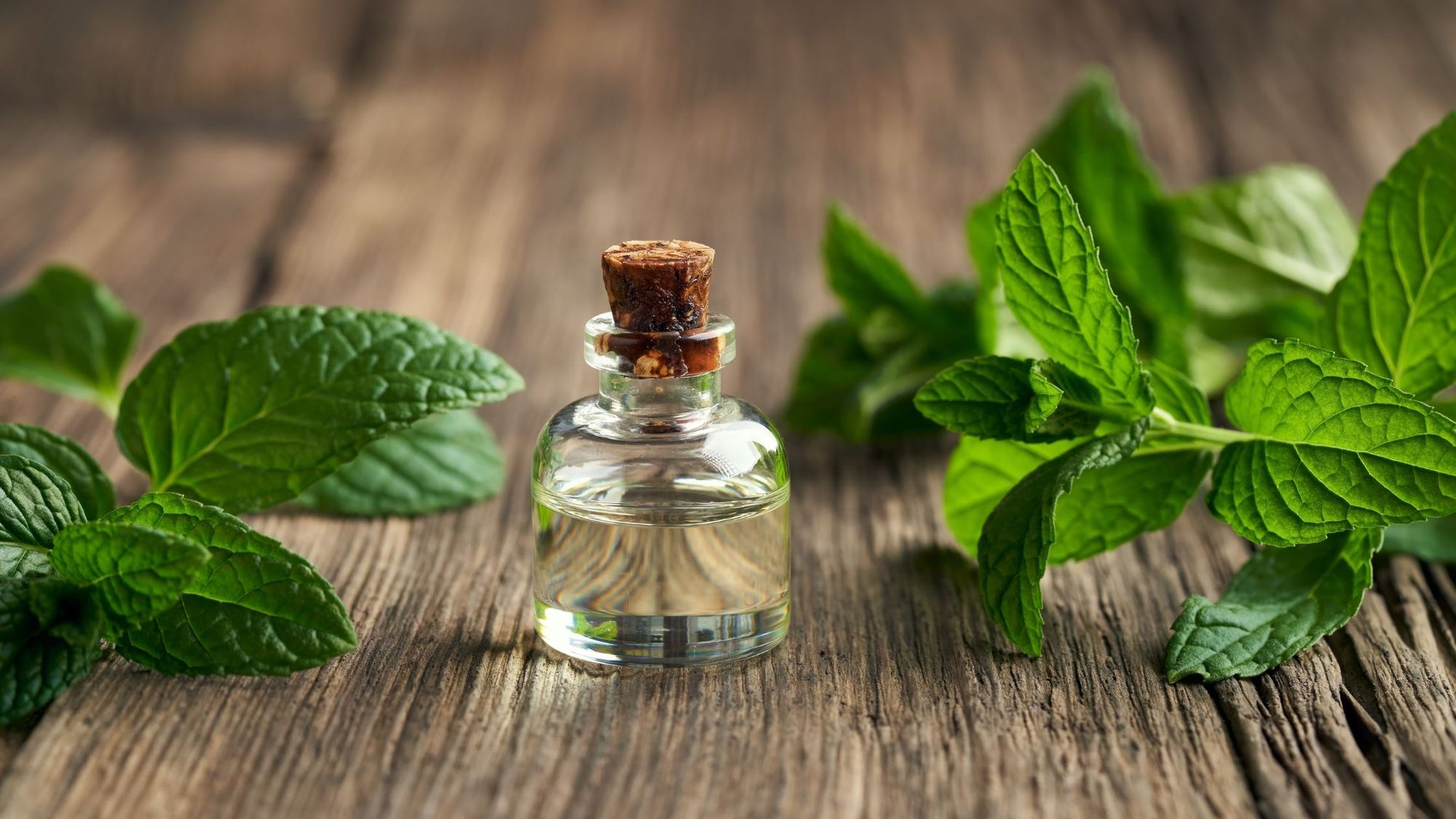
There are many health benefits of essential oils, and different essential oils have different benefits. Essential oils are popular because they tickle your olfactory nerves with delightful scents that promote calm and serenity. Some essential oils, such as peppermint, can even reduce headaches and migraines.
One of the best ways to reap the benefits of essential oils is to get a diffuser. These affordable devices allow you to place droplets of your favorite essential oil and diffuse it into a satisfying aromatic mist in the air of your room. You’ll often see on social media reels and posts how much people love to diffuse various essential oils, whether at home or in the office, for aromatherapy purposes. However, essential oils are more than just pleasantly smelling, but they also offer a broad range of therapeutic properties.
However, other people use special pain creams and other products that contain essential oils, and apply it topically to reduce pain, inflammation, or get other health benefits of essential oils that work better when applied topically. (Just always start with a patch test).
Benefits of Essential Oils as a Natural Remedy
Many people prefer natural remedies for their headaches, anxiety, chronic pain, insomnia and other ailments rather than taking prescription medication. This is because prescription medication often comes with unwanted side effects. (From grogginess and changes in appetite to anxiety and risk of addiction, there are many reasons to try to find natural remedies instead of taking meds when possible. However, always get your doctor’s advice.)
When it comes to general benefits, one of the top benefits of essential oils is that they can work as natural remedies for pain, mental health struggles, sleep problems, and more.
Studies show that essential oils have been used as a form of herbal medicine or alternative medicine since time immemorial. In fact, this art has been around for centuries. Historical data shows that the use of aromatic oil dates as far back as 4500 BC in Ancient Egypt, 3000 BC in China and India, and 500 BC in Greece. The olden people utilized different herbal mixes for medicine, cosmetics, food preservation, and perfume.
Essential oils are a concentrate of plant extracts from different parts of the plant like the bark, flowers, leaves, stems, and roots. These plant materials contain properties that could benefit humans. Many of these potent extracts have antimicrobial, antioxidant, or antifungal properties. Some can even improve mood and curb anxiety. That’s why it’s not surprising that this form of ancient alternative medicine has gone mainstream in today’s modern times.
There’s been a resurgence in the love for essential oils, with many enthusiasts praising their power and numerous health benefits. With many essential oil products in the market now, it can be confusing to choose which oils to incorporate into your life. If you are hoping to jump on the essential oil train for its health benefits, this is the article for you.
Below are 10 different essential oils and everything you need to know about them, from their benefits to how to use them.

1. Lavender Oil
Lavender oil is a popular multi-use essential oil that is exceptionally gentle but with loads of benefits. This makes a great starter essential oil for those just getting into the practice. A few drops can be added to your bath water or placed in a diffuser as aromatherapy to help you relax before bed. This is a great addition to your bedroom as it promotes better sleep hygiene because the sweet floral scent elicits calm feelings and induces restorative sleep.
Smells can have profound effects on the brain. Lavender is known to be a scent that helps people relax or fall asleep. If you’re using lavender oil for this purpose, keep your essential oil diffuser in your bedroom. Let the aroma fill the air as you read in bed, preparing for sleep.
Since lavender oil smells very fresh, many people put a few drops on cotton balls and spread them in their closets to gently infuse their clothes. You may also add this oil to water to make a room spray or body spray. And if you’re looking to make a gentle, all-natural moisturizer, you may also combine lavender oil with a base oil to create your own signature body oil. Apart from helping diffuse tension and promoting good sleep, lavender is said to help with pain management and stress relief.

2. Peppermint Oil
Everyone knows what peppermint is, even children. After all, peppermint patties and candy canes have a smidge of this delightful ingredient. But more than being infused in sweet treats or used for toothpaste and mouthwash, peppermint oil is touted as an excellent antifungal, anti-inflammatory, and antimicrobial oil.
You can apply this directly on your temples or belly because it could fight fatigue, ease headaches, reduce gut spasms, lift, improve mood, support digestion, and improve memory. If you’re looking for benefits of essential oils for headache or migraine relief, be sure to rub some peppermint oil on your temples and the top of your forehead or the back of your neck, not too much, and not too close to your eyes. Taken in tea form, peppermint also has the potential to aid irritable bowel syndrome or gastric irritations.
3. Tea Tree Oil
Tea Tree oil is often used topically as an antiseptic, antifungal, or antimicrobial treatment. It comes from the steaming of leaves from the Australian tea tree. It is commonly recommended by dermatologists to treat acne. If you’re using a pure essential oil blend, all you have to do is combine several drops with a carrier or base oil, like vegetable oil, coconut oil, or jojoba oil.
They are called carrier oils because they “carry” the potent and usually more expensive essential oil into the skin. This makes it easier to spread the essential oil and helps save you money. Once you’re done mixing the concoction, use a cotton tip and gently dab into the affected area. Tea tree oil can also be used to treat skin issues like ringworms and athlete’s foot. Alternatively, you can buy tea tree oil-infused products in the market from scrubs to toners.
A word of caution: Avoid diffusing tea tree oil if you have animals or small children at home, as it can be neurotoxic for their system. And if you have sensitive skin or autoimmune issues like psoriasis, rosacea, or eczema, it would be best to refrain from tea tree oil as this can create a reaction, resulting in inflammation.
4. Eucalyptus Oil
Popular in spas, eucalyptus oil extracted from the eucalyptus plant. It is a versatile and famous essential oil known for its fresh, minty, and woodsy scent. It’s especially popular during the holiday season, so you’ll find soy candles infused with eucalyptus in Christmas collections. However, you can use the essential oil all year round.
You can opt for direct application on the nose or chest with a carrier oil or use it with a diffuser. Eucalyptus oil is known to relieve the stuffiness in one’s nose by opening up nasal passages for better and easier breathing. It is also lauded for its pain relief properties and is said to fight against the herpes simplex virus due to its anti-inflammatory and antimicrobial properties.
A word of warning: This essential oil should not be ingested directly and may have adverse side effects on pets and children.
5. Lemon Oil
Lemon oil is extracted from lemon peel, and it’s a zingy and tangy scent that most people are familiar with. When diffused into the air, your house will smell squeaky clean and fresh, but you’ll also notice that you feel more mentally alert and productive with this scent in the air. And the other good news is, the citrusy scent is a natural repellent for most bugs, especially when combined with eucalyptus and vinegar.
Furthermore, you can gently massage lemon oil to the skin as long as it is diluted in a base oil. Don’t forget to incorporate the carrier oil because lemon is acidic and could result in irritation when applied directly. It is said to reduce pain, lessen and ease nausea, kill bacteria, and reduce anxiety and depression. However, lemon oil will leave your skin more sensitive to the sun, so make sure to use SPF to prevent sunspots.
6. Lemongrass Oil
Lemongrass is a popular plant in Asia. But you may have seen a stalk of lemongrass as it is popularly used in Vietnamese and Thai cuisine. The strong citrus scent of lemongrass oil is refreshing, so people enjoy diffusing this scent. More importantly, it is known to help reduce anxiety, stress, and it can relieve symptoms of depression.
Lemongrass oil is also known for its antibacterial properties and is a great remedy for healing wounds and killing bacteria. It is also noted to prevent fungal growth. This must be used with carrier oil when applied to the skin. Others suggest drinking a few drops of food-grade lemongrass oil because it could help reduce blood sugar in type 2 diabetics and decrease the pain of rheumatoid arthritis.
7. Camphor Oil
Camphor oil taken from the wood of camphor trees, and processed through steam distillation.
The benefits of essential oils like camphor oil are quite impressive. Camphor oil has been known for years to have many natural benefits when it comes to relieving pain, itching, and irritation. It can also help relieve pain caused by inflammation.
When it comes to pain relief or natural pain remedies, camphor is one of the most versatile essential oils for pain.
Lotions containing camphor can significantly reduce pain, itchiness, and irritation as well as improving the appearance of skin. The antibacterial and antifungal properties in camphor make it excellent for healing infections. Camphor is an ingredient in a number of topical analgesics because of its powerful ability to stimulate circulation, reduce pain signals in the nerves, and reduce inflammation.
Camphor oil can help treat migraines, by suppressing pain-signalling pathways and neurogenic inflammation. In aromatherapy, it also relieves respiratory congestion thanks to antitussive properties which ease coughs and chest-based discomfort. Camphor oil is one of the natural pain relievers that can even help reduce pain from muscle cramps.
If you use a muscle rub lotion that contains camphor oil, you might find that it can reduce muscle spasms, stiffness, and muscle cramps.
8. Rosemary Oil
Rosemary is popular as an herb and a common aromatic used in dishes like steaks, stews, or herbed chicken. However, it’s more than just a cooking ingredient. This is a potent essential oil, which you can diffuse, smell directly from the bottle, or apply to the skin. Rosemary oil is noted to help improve brain function, promote hair growth, lift mood, reduce pain and stress, and reduce joint inflammation. If you’re intending to use this oil for your skin and scalp, dilute it with a carrier oil to prevent skin irritation and discomfort.
Noteworthy, studies assert that rosemary oil is a very powerful hair grower, and it can even rival minoxidil (Rogaine) or hair-regrowing medicine. However, you are advised to avoid rosemary oil if you have epilepsy and high blood pressure as it may worsen the condition. Pregnant women are also not advised to use rosemary oil because this potent product may induce uterine contractions and result in preterm labor or miscarriage.
9. Orange Oil
Made from the rinds of the orange fruit, this oil can be diffused or applied topically to the skin with a base oil. You can even extract your own essential oil from used orange peels and save a ton of money. Check out this tutorial video to transform your orange peel scraps into something useful.
Adding this to your beauty routine helps improve overall skin texture. That’s not surprising because oranges are loaded with vitamin C, an antioxidant that protects against environmental damage and oxidative stress. This essential oil can serve as an astringent while locking in moisture at the same time. This promotes skin cell renewal, so it has the potential to prevent fine lines and wrinkles. It does make skin more sensitive, so apply SPF to the skin.
Orange oil can be used to clean your home due to its antibacterial properties. And when you use this as a cleanser, you get the added bonus of that refreshing citrus scent. The calming aroma is reported to reduce pain and anxiety.
10. Cedarwood Oil
Known for its antibacterial and antioxidant properties, cedarwood oil is a common ingredient in shampoo, deodorant, and insect repellent. It has a woody scent and can also be used to relieve anxiety and improve the quality of sleep.
It can be diffused for aromatherapy or may be applied topically to the skin when mixed with carrier oil. It may not be as popular as the other oils, but this deserves a spot in your essential oil collection.
11. Bergamot Oil
Bergamot oil is a fruity and floral oil that is wonderfully enjoyable when diffused and may even be applied to the skin when diluted in a base oil. It is known to relax and lift one’s mood, lower blood pressure and reduce anxiety. When applied topically, it may make skin sun sensitive, so wear protective clothing and SPF.
If you’re all set to use essential oils, you have to consider everything to protect your overall wellness. Don’t merely join the bandwagon for the sake of being trendy. Instead, do your research because these essential oils truly have a wealth of benefits that could improve your quality of life. As the consumer, it’s your responsibility to advocate for yourself and ensure you’re using quality products that don’t harm your body. You must also ascertain you’re using products that align with your unique constitution.
For example, some people may be allergic to citrus-based oils or even have a sensitivity to peppermint. Before you start your essential oil journey, use a small sampler set and do a patch test or smell a small amount of it to see if your body reacts to it. If you intend to use it topically, do a very small patch test to ensure you don’t suffer an adverse reaction.
If you’re considering using essential oils in addition to prescription medication for sleep or anxiety, be sure to find out if you have any drug allergies first. There are at-home DNA tests out there that will provide you with hundreds of reports about yourself, including your nutritional needs, possible genetic drug response risks, your exercise needs, and more.
References:
- Biological Importance of Essential Oils (Muhammad Irshad et.al.) https://www.intechopen.com/chapters/68027
- An Overview of the Biological Effects of Some Mediterranean Essential Oils on Human Health (Hazem S. Elshafie & Ippolito Camele) https://www.ncbi.nlm.nih.gov/pmc/articles/PMC5694587/
- A review of applications of tea tree oil in dermatology (Nader Pazyar et.al.) https://pubmed.ncbi.nlm.nih.gov/22998411/
- Antiviral activity of some plant oils against herpes simplex virus type 1 in Vero cell culture (Shahin Gavanji et.al.) https://www.sciencedirect.com/science/article/pii/S2211558715000734
- Repellency of oils of lemon eucalyptus, geranium, and lavender and the mosquito repellent MyggA natural to Ixodes ricinus (Acari: Ixodidae) in the laboratory and field (Thomas G T Jaenson et.al.) https://pubmed.ncbi.nlm.nih.gov/16892632/
- Effect of lemongrass oil on rheumatoid arthritis (M. Meenapriy & Jothi Priya) https://www.researchgate.net/publication/319092284_Effect_of_lemongrass_oil_on_rheumatoid_arthritis
- Camphor oil and pain: https://www.ncbi.nlm.nih.gov/pmc/articles/PMC4968782/
- Analgesic Effects of the Essential Oil from Cinnamomum camphora Against Nitroglycerin-induced Migraine in Mice: https://www.ijpsonline.com/articles/analgesic-effects-of-the-essential-oil-from-emcinnamomumcamphoraem-against-nitroglycerininduced-migraine-inmice-3831.html?view=mobile
- Promotion of hair growth by Rosmarinus leaf extract (Kazuya Murata et.al.) https://pubmed.ncbi.nlm.nih.gov/22517595/
- How to extract orange oil from orange peels (Anami Shall-Holma) https://www.youtube.com/watch?v=RQ92aJ2b-ZM





